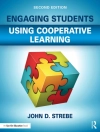Working to be Someone presents an overview of worldwide research on working children that considers children’s own views of employment in favour of adult-constructed arguments about child work.
This book brings together contributions by internationally renowned researchers who are committed to a ‘subject-orientated’ approach as well as views and observations of activists from organizations that either work with child labour or support working children’s movements. Chapters examine the traditionally widespread care and domestic work carried out by children, discuss localized explorations of working children – for example in Morocco, India and Europe – as well as consider work as a means for children to contribute economically to the family. Contributors also discuss children’s movements and organizations in Africa, Asia and South America that claim work as a necessity for survival as well as a key to children’s own agency and citizenship.
This book is a key text for both academics and social work practitioners that encourages re-evaluation of the notion of childhood and understands the complex phenomenon of working children.
Tabela de Conteúdo
Introduction. Beatrice Hungerland, Manfred Liebel, Brian Milne and Anne Wihstutz. Part 1. Theoretical Approaches. 1. A Feminist Economist’s Approach to Children’s Work. Deborah Levison, University of Minnesota, MN. 2. Working Children and the Cultural Perception of Childhood. Zandra Pedraza-Gómez, Universidad de los Andes, Colombia. 3. Harmed by Work or Developing Through Work?: Issues in the Study of Psychosocial Impacts. Martin Woodhead, Open University. 4. The Reintegration of Children into the Adult World of Work: Ominous Sign or Cause for Optimism? Dieter Kirchhöfer, University of Potsdam, Germany. Part 2. Care and Domestic Work. 5. Child Domestic Workers in Zimbabwe. Michael Bourdillon, University of Zimbabwe, Harare. 6. Negotiating Gender Identities: Domestic Work of Indian Children in Britain and in India. Vinod Chandra, Indian Institute of Technology, Khargpur. 7. The Significance of Care and Domestic Work to Children: A Germany Portray. Anne Wihstutz, Martin-Luther University, Germany. 8. `Helping at Home’: The Concept of Childhood and Work Among the Nahuas of Tlaxcala Mexico. Martha Areli Ramírez Sánchez, Universidad Iberoamericana, Mexico City. Part 3. Work and Competence. 9. Children’s Work as Preparation for Adulthood: A British Perspective. Jim Mc Kechnie and Sandy Hobbs, University of Paisley. 10. Working Children in Fez, Morocco: Relationship Between Knowledge and Strategies for Social and Professional Integration. Bernard Schlemmer, Institute de Recherche pour le Développement, France.11. Working and Growing Up in America: Myths and Realities. Jeylan T. Mortimer, University of Minnesota, MN. 12. Between Prohibition and Praise: Some Hidden Aspects of Children’s Work in Affluent Societies. Manfred Liebel, Technical University of Berlin, Germany. Part 4. Participation of Working Children. 13. Children’s Work as `Participation’: Thoughts on Ethnographic Data in Lima and the Algarve. Antonella Invernizzi, Swansea University, . 14. Child Employment in Northern Ireland: Myths and Realities. Madeleine Leonard, Queens University. 15. Vocabularies, Motives and Meanings – School-Age Workers in Britain: Towards a Synthesis? Christopher Pole, University of Leicester. 16. Child Work and Child Labour in Italy: The Point of View of the Children. Maria Teresa Tagliaventi, Istituto degli Innocenti, Italy.17. Work – A Way to Participative Autonomy for Children. Beatrice Hungerland, University of Applied Sciences, Magdeburg-Stendal, Germany. Part 5. Citizenship and Working Children’s Movements and Organisations. 18. The Stakes of Children’s Participation in Africa: The African Movement of Working Children and Youth. Hamidou Coly, street worker and collaborator of the African Movement of Working Children and Fabrizio Terenzio, Youth Action Team, ENDA, Senegal. 19. Working With Working Children in India. Nandana Reddy, Concerned for Working Children, India. 20. Dialogue and Empowerment for Change: The Influence of Organisations of Working Children in Southeast Asia on the Social Status of Working Children. Dominique Pierre Plateau, Save the Children, Sweden. 21. Do the Participation Articles in the Convention on the Rights of the Child Present Us with a Recipe for Children’s Citizenship? Brian Milne, Consultant Researcher and Trainer in Children’s Rights, Swansea. Part 6. Challenges and Perspectives for Research and Policy. 22. Challenges for Social Research and Action with Working Children. Virginia Morrow, University of London. 23. Some Suggestions for Social Research on Working Children’s Initiatives. William E. Myers, University of California, CA. 24. The Balance Model Reconsidered: Changing Perceptions of Child Employment. Sandy Hobbs and Jim Mc Kechnie.25. Exploring Children’s Work Through Pictures. Phil Mizen, University of Warwick.Bibliography. The Contributors. Subject index. Author index.












